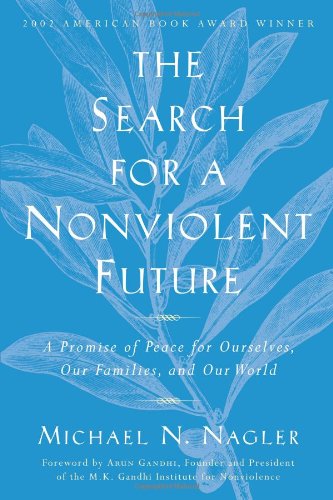“The varna system implies the obliteration of all distinctions of high and low.” ~ Gandhi, Ashram Observances in Action (1955), p. 50
Varna, literally “color,” means essentially “caste.” It often comes as a surprise that Gandhi did not favor eliminating the caste system, but rather purging it of its connotations of superiority/inferiority. This because he felt that there was something natural about caste distinctions, however much they had been abused and exploited, and properly understood they were a way to eliminate divisive competition and guarantee everyone the same living wage. It’s hard to imagine a caste system not being exploited, but for him it was harder to imagine a society not having one. History seems to bear him out. It is unfortunate that this important aspect of his deeply held belief in “heart unity” has been misunderstood.
Thanks for sharing a comment below.
About Daily Metta
 Stephanie Van Hook, the Metta Center’s executive director, launched Daily Metta in 2015 as a way to share Gandhi’s spiritual wisdom and experiments with nonviolence.
Stephanie Van Hook, the Metta Center’s executive director, launched Daily Metta in 2015 as a way to share Gandhi’s spiritual wisdom and experiments with nonviolence.
Our 2016 Daily Metta continues with Gandhi on weekdays. On weekends, we share videos that complement Michael Nagler’s award-winning book, The Search for a Nonviolent Future: A Promise of Peace for Ourselves, Our Families, and Our World. To help readers engage with the book more deeply, the Metta Center offers a free PDF study guide.
Enjoy more Daily Metta: See the archives
Get Daily Metta by email: Subscribe









I was unaware of Gandhi’s acceptance of the caste system. In reading your explanation on today’s Metta reflection, I think a further explanation is necessary. What, for example, is natural about caste distinctions, if those distinctions are life-long? How do they “eliminate competition” and “guarantee everyone the same living wage? How does history support his view that societies need such iron-clad distinctions? Finally, what did Gandhi mean by “heart unity”? I understand that there will always be rich and poor, but people can move from one to the other or somewhere in between, through personal effort or good or bad fortune. My understanding of the caste system is that once born into a certain caste, a person remains in that caste no matter what. As you rightly point out, it’s “hard to imagine a caste system not being exploited.”
Thanks for your comment, Dan. Wish I had time to give a full response. Gandhi did not in fact hold that caste distinctions should be permanent, for life. He held that one should be able to take up any profession, but it would be wise to earn one’s living within the one that s/he was born into. There is not question that people are born with different capacities, and caste –originally — was simply an attempt to recognize that. “Heart Unity” was one of his most important coinages and discoveries (see our glossary). It meant that we can wish one another well despite any surface differences. I hope this helps. He has writings on caste, of course.